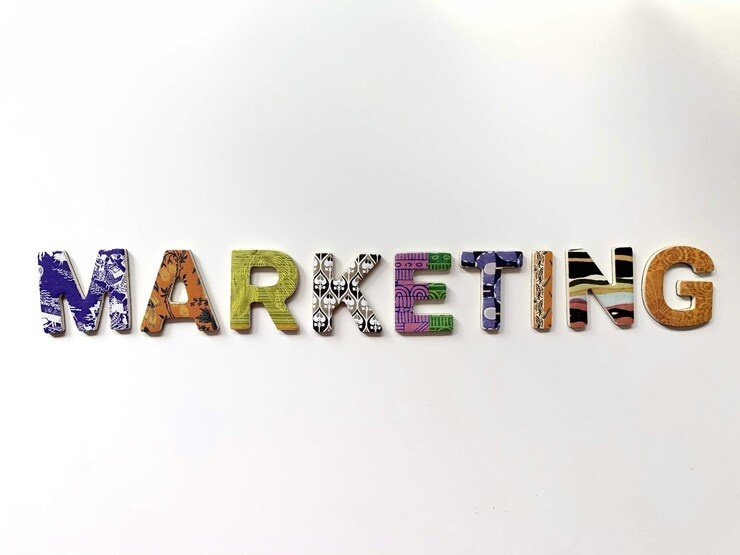Digital marketing enters its trillion-dollar decade
 © Unsplash
© Unsplash
The digital marketing industry — once a niche offshoot of traditional advertising — has officially become one of the world’s largest and fastest-growing economic sectors.
According to IMARC Group’s latest report, the global market hit $410.6 billion in 2024 and is projected to triple to $1.19 trillion by 2033, growing at a compound rate of 11.2%.
For Egyptian marketers, agencies, and investors, this isn’t just another global trend. It’s a clear signal that the rules of marketing, growth, and customer acquisition are being redefined by data, AI, and digital platforms — and Egypt’s emerging digital economy has a front-row seat to this transformation.
What’s driving the boom: data, AI, and mobile-first behaviorThe digital marketing surge is being fueled by five global shifts — all of which are reshaping Egypt’s own marketing landscape.
-
Social media is the new marketplace.
Social platforms now command 30% of total global digital marketing spend, making them the world’s dominant advertising medium.
In Egypt, with over 50 million active social media users, brands are increasingly shifting their budgets to TikTok, Instagram, and LinkedIn, where micro-influencers, user-generated content, and short-form videos are outperforming traditional campaigns. -
AI is revolutionizing marketing workflows.
Globally, 80% of marketers report stronger engagement thanks to AI tools that analyze customer behavior and personalize content in real time.
From AI-powered content generation to predictive analytics that identify high-value prospects, Egypt’s agencies and startups are starting to adopt similar systems — especially as local access to platforms like ChatGPT, Clay, and HubSpot AI tools expands. -
Mobile-first is no longer optional.
With 80% of retail traffic now coming from smartphones and 20% of users relying on voice search, mobile optimization has become a survival skill for marketers.
Egyptian e-commerce leaders like Jumia, Homzmart, and MaxAB have already gone all-in on mobile-first campaigns — a trend smaller brands are quickly following. -
Video dominates engagement.
Short-form videos are now the most effective format across global markets, driving 15% of all digital marketing spend.
In Egypt, video is the undisputed growth engine for creators, e-commerce brands, and even B2B players. TikTok’s explosive local adoption and YouTube’s long-form dominance are reshaping how Egyptian companies communicate brand value and storytelling. -
Data, not intuition, drives decision-making.
Around 90% of global organizations say that data analytics now underpin their customer engagement strategies.
Egypt’s leading marketers are following suit — integrating tools like Google Analytics 4, Meta’s ad optimization systems, and programmatic ad platforms to make decisions based on performance data, not guesswork.
Egypt’s digital economy has matured significantly in the past five years, and the country is now one of the fastest-growing digital advertising markets in Africa and the Middle East.
Local agencies and tech firms are increasingly focusing on:
-
AI-based campaign automation and CRM integration
-
Arabic-language content localization for regional expansion
-
Influencer and creator economy partnerships targeting Gen Z consumers
-
Cross-border e-commerce marketing, supported by Egypt’s logistics growth and free trade access
As social media usage, mobile adoption, and online shopping surge, Egypt’s advertisers are well-positioned to ride the next wave of digital transformation — especially in retail, real estate, fintech, and education.
The shift away from traditional media is acceleratingGlobally, companies are reallocating budgets away from TV, print, and radio toward digital platforms that offer precise audience targeting and measurable ROI.
This shift is already visible in Egypt, where national brands that once dominated outdoor and television advertising — from telecom giants to banks — are investing heavily in omnichannel digital strategies.
Even state institutions and ministries have started to digitize their communications, adopting social-first campaigns to reach younger demographics.
Why this matters for Egyptian businesses and investorsEgyptian companies that embrace the digital marketing boom stand to gain on several fronts:
-
Export potential: Egypt’s creative and marketing service exports — including design, ad tech, and social media management — are expanding rapidly, serving Gulf and African clients.
-
Cost advantage: Egypt’s skilled workforce and lower operational costs make it a competitive hub for marketing outsourcing and agency services.
-
AI readiness: The government’s National AI Strategy, launched under the Ministry of Communications and Information Technology (MCIT), is opening opportunities for AI-driven adtech startups and data analytics firms.
As the global digital marketing market heads toward $1.2 trillion, Egypt has a clear opening — but only for players ready to embrace automation, AI, and data analytics at scale.
The future of marketing in Egypt won’t be defined by who advertises the most, but by who understands their audience best — and who can adapt the fastest to an AI-driven, content-rich, mobile-first world.
The next decade will belong to marketers who blend technology with storytelling, data with creativity, and local insight with global tools.
For Egyptian businesses, that’s not a future to wait for — it’s one already unfolding, scroll by scroll.


